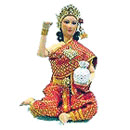 Will: Hi Jake, thank you for taking the time to chat. So tell us about your latest novel, The Ambassador’s wife. In the past your themes have been financial crimes, this new book is a little different, right?
Will: Hi Jake, thank you for taking the time to chat. So tell us about your latest novel, The Ambassador’s wife. In the past your themes have been financial crimes, this new book is a little different, right?Jake: Maybe THE AMBASSADOR’S WIFE is a bit dissimilar to my other books in some ways, that's probably true enough; but I think I would characterize the reason for that dissimilarity a little differently than you have. The various crimes that form the plots of my books are just their framework. They're not really what the books are about.
My books all seem to me to work the general theme of expatriation, how one goes about living a life in a culture that is not one’s own, and they all explore the concept of living as an expatriate through characters who are driven to search the unfamiliar culture where they find themselves in order to solve a crime.
In THE BIG MANGO, Eddie Dare is an American who against his will and better judgment is pulled into an adventure in contemporary Bangkok and must figure out how to deal with the place when he knows little or nothing at all about it. The character of Jack Shepherd in LAUNDRY MAN and KILLING PLATO takes a job teaching international business at Chulalongkorn University because he is sick of his life in Washington and wants a change, but he doesn’t have the first idea what he is getting into by transplanting himself to a place like Thailand.
In THE AMBASSADOR’S WIFE, Inspector Tay is a Singaporean CID cop who feels like an expatriate in his own country because it no longer seems to him to be the place in which he grew up. When he’s assigned to a brutal murder case, the evidence leads him first into the unfamiliar diplomatic culture of the American Embassy in Singapore, and then eventually into the even less familiar culture of Thailand, so all at once Sam is largely cut free from all his moorings.
The biggest difference between THE AMBASSADOR'S WIFE and my others books, as far as I'm concerned, is that the story is told through the eyes of a character who is Asian by birth rather than western. Sam Tay doesn’t even like westerners very much, he says they make him uncomfortable, yet, the way he has to cope with the unfamiliar world into which he is placed really isn’t all that different from the way the rest of us find we have to cope, regardless of where we were born.
In all four books, it is the necessity to come to terms with an utterly alien cultural environment in order to solve a crime that drives the plot, not the particular kind of crime that is involved.
Will: Will you continue to change direction in the future?
Jake: The two series characters I’ve originated so far Jack Shepherd and Inspector Tay are both characters I’ve grown to like a lot. I’m working on the second Sam Tay book now and my general intention at the moment is to continue doing alternate books for these two characters. If these guys change direction, I guess I’ll have to follow them. Otherwise, I’ll probably keep doing pretty much what I'm doing now for quite a while.
Will: The Ambassador’s Wife is set in Singapore. I’ve never been to Singapore, but I hear that it’s the cleanest, least friendliest city in the world. How do you like Singapore?
Jake: I like it fine. I don’t know who told you it was an unfriendly place, but I certainly don’t see it that way. Singapore's got friendly people; it’s also got unfriendly people. Mostly, it’s got people who have better things to do than worry about which one of those categories they fall into. Singapore is an important international city like Los Angeles or Tokyo. It’s also quite beautiful and uniformly functional.
By comparison, Bangkok is an inconsequential third world backwater, which, I suspect, is one reason a lot of its foreign population is here in the first place. Singaporeans tend to look at Thais rather like Brits view the Irish, only not nearly as smart nor as energetic.
Will: Your books are not available to buy in the US and Europe. Why is that?
Jake: The major US and UK publishers decide what books will be available to readers in their markets and they insist that almost no one in the US or UK wants to read fiction that comes out of Asia. After fighting that battle for quite a while now, I simply accept that westerners, at least those who are the gatekeepers of the popular entertainment business, just don’t like Asia or Asians very much. The only thing they appear to like less than Asia, in fact, are westerners who have chosen for one reason or another to live here.
Without the enthusiastic support of one of the major western publishers, I would have no chance at all of being widely distributed, well displayed, or favorably reviewed in the American or British markets. No Asian publisher has the resources to buck that tide.
It really comes down to this: I would rather not let my books be marketed in the US and the UK at all than to see them badly marketed there or marketed by people who are contemptuous of their subject matter.
Will: I read not so long back that there were plans to make The Big Mango into a movie with James Gandolfini, is that still in the pipeline? On your website you say that the project is getting bogged down in “development”.
Jake: Frankly, I’ve always thought it a minor miracle of sorts that any movie ever gets made. You can’t imagine the number of fingers in the pie of every project or the number of hungry egos that have to be fed from each of them. These guys who own the rights to THE BIG MANGO have got a big-time star and now they’ve got a big-time screenwriter on board, too. One more major player, one more ego to feed, and I figure there’s no chance whatsoever of THE BIG MANGO ever getting made.
Will: If they were ever to make a movie of my life I think Leonardo Dicaprio or Brad Pitt would be a fair likeness if cast in the role. Who would you have play you if they made a movie of your life?
Jake: Any one of the Marx Brothers. Oh, never mind...they're all dead, aren't they?
Will: Asia Inc said this about you: "Needham certainly knows where a few bodies are buried." What does that mean?
Jake: Asia Inc is a business magazine and the journalist who wrote that piece was intrigued that over the past couple of decades I had been involved in a number of major financial deals in Asia. He figured I probably had a good deal of inside knowledge about all sorts of things he was interested in. He was right, of course, but in spite of his best efforts he never found out what any of it was.
Will: And the Bangkok Post wrote this about you: "One of the distinctive strengths of Needham’s novels is that he has the urban landscape of Asia down absolutely cold. He sketches it in sharp, sure strokes using language that is razor-edged with a touch of melancholy, at times even richly poetic."
Does your wife still work at the Bangkok Post?
Jake: Ha ha ha.
Just to keep the record straight, Aey never worked for the Post, although a few years ago they did publish locally a newspaper column she used to write. She hasn’t written her column for over two years now, but she still gets fan mail about it so I guess a fair number of people must miss it.
Will: Seriously, though, you must be very proud of the reviews and having now sold over 65,000 books?
Jake: I am. From Singapore to Hong Kong, my books sell as well as John Grisham or Michael Connelly or any other big time international novelist, and they are almost always well-reviewed in the press. Asia isn’t a huge market, of course most of the international publishers seem not to care that we exist at all, but I’d far rather be a best-selling author in a small market than just an also-ran somewhere else.
Will: And which other authors do you admire most?
Jake: Here are five: Henning Mankell, a Swedish author of crime fiction; Charles McCarry, an American writer of spy fiction; Qiu Xiaolong, a contemporary Chinese novelist; Martin Cruz Smith, an American author of big international novels; and Joan Didion, a truly extraordinary essayist.
Will: I live in Pai and Bangkok seems a million miles away. Is Bangkok home for you?
Jake: Aey and I have kept an apartment here in Bangkok for the fifteen years or so we’ve been married, although we have a home in Honolulu as well. At the moment, our youngest son is in international school in Bangkok so we’re here most of the time during the school year and mostly in Hawaii the rest of the year.
Will: You’ve written twelve screenplays in the past. Do you plan to write any more, or will you just be concentrating on novels from now on?
Jake: To tell you the absolute truth, I hate movies. Always have. Never go to them. Never even watch them on television. Once upon a time, I wrote screenplays because some people asked me to and they paid me a ridiculous amount of money for what was really very easy work. Screenplays aren’t real writing. They're mostly a sort of parlor trick. With a little practice and a $300 piece of software, any monkey could crank them out. If you don't believe me, just drop around to your neighborhood theater, take a look at what’s on offer, and then tell me I’m wrong.
Will: And can you tell us anything about your next novel?
Jake: The new Inspector Tay novel is called THE COMPANY OF THE DEAD. The title comes from Proverbs 21: A man who strays from the path of understanding comes to rest in the company of the dead. It should be out toward the end of this year.
Will: OK, Jake, thank you very much. It's been a pleasure.


No comments:
Post a Comment